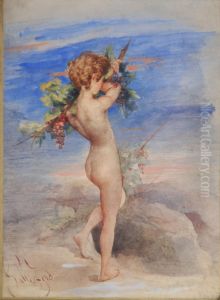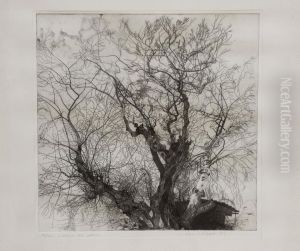Ferdinando Galli Paintings
Ferdinando Galli, also known as Ferdinando Galli Bibiena or Ferdinando Galli da Bibiena, was an Italian architect, designer, and painter who became famous for his work in the Baroque style. Born in 1650 in Bologna, Italy, he was part of the illustrious Galli Bibiena family, an Italian dynasty of artists, architects, and scholars who played a significant role in the development of theater design, scenography, and architecture during the late 17th and early 18th centuries.
Ferdinando was the son of Giovanni Maria Galli, and he was trained by his father in the arts before continuing his studies under the guidance of painter Carlo Cignani. His early work often involved painting and he developed a strong understanding of perspective—a skill that would heavily influence his later designs for theater stages and their elaborate scenery.
Throughout his career, Ferdinando worked across Europe, from his native Italy to Germany, where he became the chief theater engineer at the court of the Elector Palatine in Heidelberg. His designs were revolutionary, creating depth and illusion on stage with sophisticated perspective techniques. He was also responsible for producing designs for festivities, court events, and the decoration of palaces, working for a number of high-ranking patrons.
Galli Bibiena's influence extended not just in scenography but also in architecture. He designed several churches and palaces, incorporating the grandeur and dynamism that characterized the Baroque movement. His architectural works often featured dramatic contrasts of light and shadow, complex spatial arrangements, and a rich use of decorative elements.
Ferdinando Galli Bibiena died in 1743, but his legacy lived on through his family and many students. The Galli Bibiena family name remained synonymous with theatrical design and Baroque art for generations, with his descendants continuing to create works across Europe. Ferdinando's vision and innovations in the realm of stage design particularly had a lasting impact on the evolution of European theater and opera.

